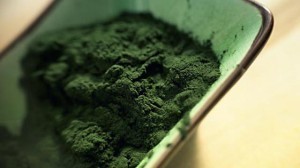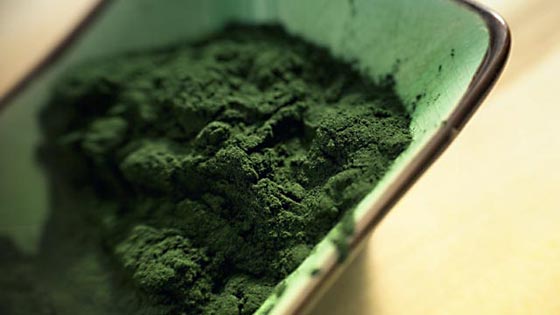
I don’t like using the term superfood, though it could certainly be applied to Spirulina. Though not technically an herb (actually a cyanobacteria), it boasts its fair share of health promoting properties. It is rich in Chlorophyll, and like plants, gets its energy from the sun. Spirulina is a natural “algae” (cyanbacteria) powder that is incredible high in protein and nutrients. When harvested correctly from non-contaminated ponds and bodies of water, it is one of the most potent nutrient sources available. It is largely made up of protein and essential amino acids, and I typically recommend it to clients who decide to remain vegetarian for its high natural iron content. It is often touted for its high B-12 content, though there is a lot of debate about if this particular form is a complete and absorbable form of B-12 and I don’t recommend it completely in place of animal products. The high concentration of protein and iron also makes it ideal during pregnancy, after surgery, or anytime the immune system needs a boost.
Spirulina, a type of blue-green algae, is an incredible superfood that provides a concentrated source of protein, vitamins, antioxidants, and other nutrients. As one of the oldest life forms on Earth, the use of spirulina as a food source dates all the way back to 9th century Chad, and it is believed spirulina was used by the Aztecs in 16th-century Mexico.
Spirulina, a type of one-celled organism, got its name from the Latin word for “helix” or “spiral” because of its spring-like physical characteristic. In the US, spirulina is mostly known as a nutritional supplement or an ingredient to add nutrient power to smoothies and green drinks. However, in other parts of the world, spirulina is regarded as a valuable food source to prevent malnutrition.
What Makes Spirulina a Nutritional Superstar?
Although spirulina is often described as “blue-green algae,” it is technically a type of cyanobacteria. Cyanobacteria are classified as bacteria because their …
![]() Even though spirulina is entirely natural and generally considered a healthful food, there are some contraindications you need to be aware of. You should not take spirulina if you have a severe seafood or iodine allergy. And, if you are pregnant or nursing or have hyperthyroidism, consult your healthcare provider before taking spirulina.
Even though spirulina is entirely natural and generally considered a healthful food, there are some contraindications you need to be aware of. You should not take spirulina if you have a severe seafood or iodine allergy. And, if you are pregnant or nursing or have hyperthyroidism, consult your healthcare provider before taking spirulina.
Please Read this Article at Articles.Mercola.com





Leave a Reply